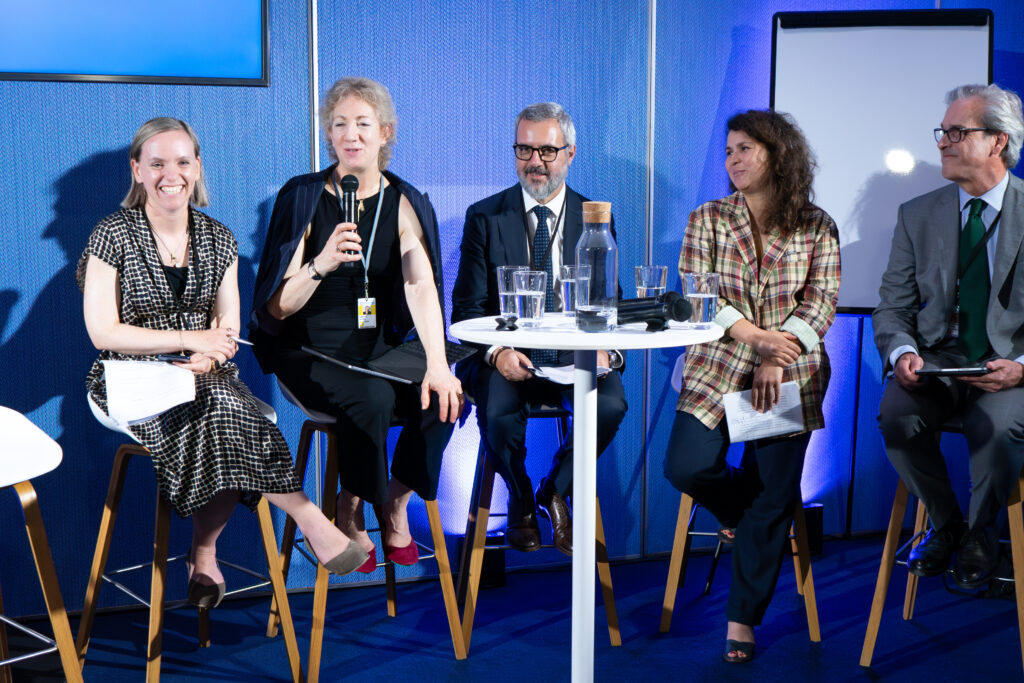The individuals profiting from illegal fishing and human rights abuses at sea regularly use ‘Flags of Non Compliance’ (FONCs), more commonly known as Flags of Convenience (FOCs) to evade scrutiny and sanction for their crimes.
On 12th June 2025, at the 3rd United Nations Ocean Conference (UNOC), members of the EU IUU Fishing Coalition convened a high-level side event — No flag to hide behind: Holding flag States accountable in the fight against IUU fishing — bringing together government representatives, civil society, and international experts from across the globe to discuss how to tackle this. The event, co-organised with Fondation de la Mer, the Coalition for Fisheries Transparency, and TRAFFIC, explored how FONCs enable illegal, unreported and unregulated (IUU) fishing.
Speakers explored how FONCs are systematically exploited to obscure true ownership of fishing vessels and how this enables serious environmental and human rights violations. The panel delivered a clear message: Flags of Non-Compliance must be tackled head on to prevent IUU fishing globally, and all countries must collaborate to take action now.
The use of these flags and open registries allow perpetrators to evade scrutiny, and most importantly, consequences. For example, the Wisdom Sea Reefer escaped sanctions for years by flag hopping (when a vessel frequently changes its flags to avoid sanctions) and through complex corporate structures. Between 2017 and 2019, it had four different flags and was owned by companies in three different countries; it also changed names repeatedly to avoid the consequences. These tactics allow vessels to operate across jurisdictions with little fear of detection or consequences.
The side event examined the links with FONCs and IUU fishing operators using these tactics and explored tools and reforms to address them. All panellists agreed that coordinated cooperation, communication, and data-sharing is needed now to put an end to IUU fishing and hold those responsible to account.
Flags of convenience: a key enabler of illegal fishing
Max Schmid opened the discussion with a clear warning:
“Flag hopping is a deliberate tactic to avoid scrutiny, it’s the opposite of transparency” and “one of the most effective tools illegal fishers have is flags of convenience…the fight against IUU fishing cannot succeed without tackling FoC.”

Vanya Vulperhorst, echoed this concern, describing a vessel linked to Lithuania and Malta that has reflagged several times within six-month intervals, always to red-carded countries or high-risk for IUU fishing flag States, while consistently fishing in Mauritania:
“These vessels change flags every 6 months [to] hide links to the EU. [Member States] must do better to track and control their nationals operating in non-EU countries.”
A recent Oceana analysis suggests that over 340 vessels flagged outside the EU had European owners, with many flagged to high-risk or yellow-carded countries. To help improve flag State responsibilities, Ms Vulperhorst highlighted Pew’s Flag State Performance Assessment Tool, a questionnaire that identifies legal and policy gaps for vessels operating beyond national waters.
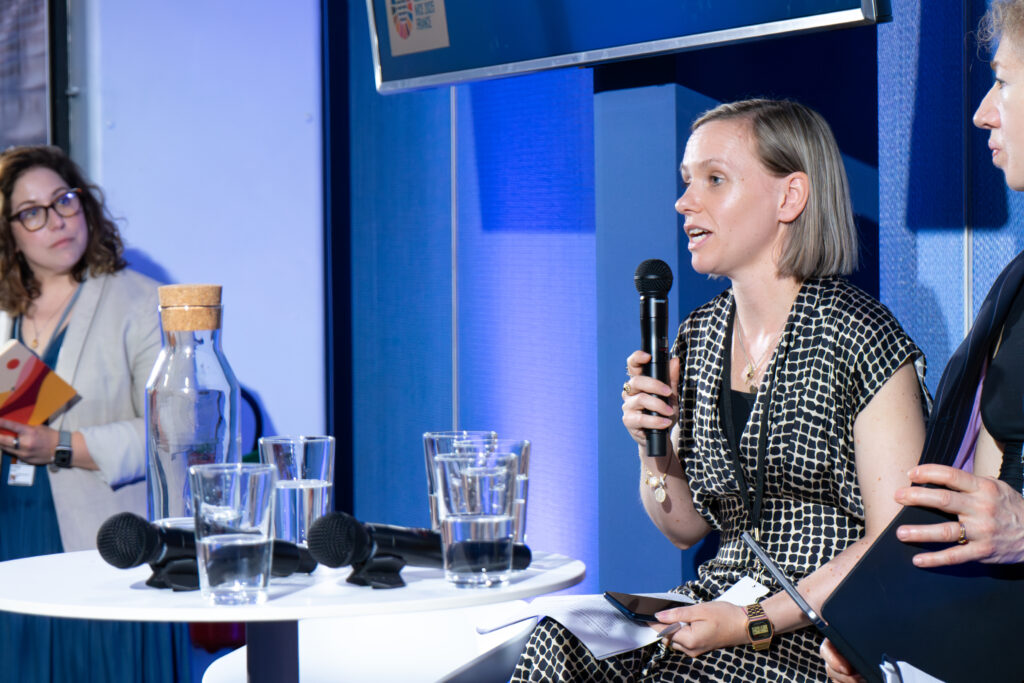
Transparency and beneficial ownership: the cornerstones of reform
Throughout the discussion, speakers agreed that increased transparency and the identification of beneficial owners are vital to disrupting the business model of IUU fishing.
Maisie Pigeon, Director of the Coalition for Fisheries Transparency, and moderator of this side event, made it clear:
“Transparency is not only a tool, it is a prerequisite for reform.”
She also stressed that tools exist to guide governments on how to approach transparency:
The Coalition for Fisheries Transparency and our members strongly believe in reforms grounded in transparency, accountability, and international collaboration. The foundation of our work is the Global Charter for Fisheries Transparency – which outlines ten key principles to drive change and infuse accountability and transparency across the sector. Principle 4 of the Charter specifically calls for urgent action to end the abuse of Flags of Convenience by ensuring all flag States fulfill their legal obligations to monitor and control the vessels flying their flag.
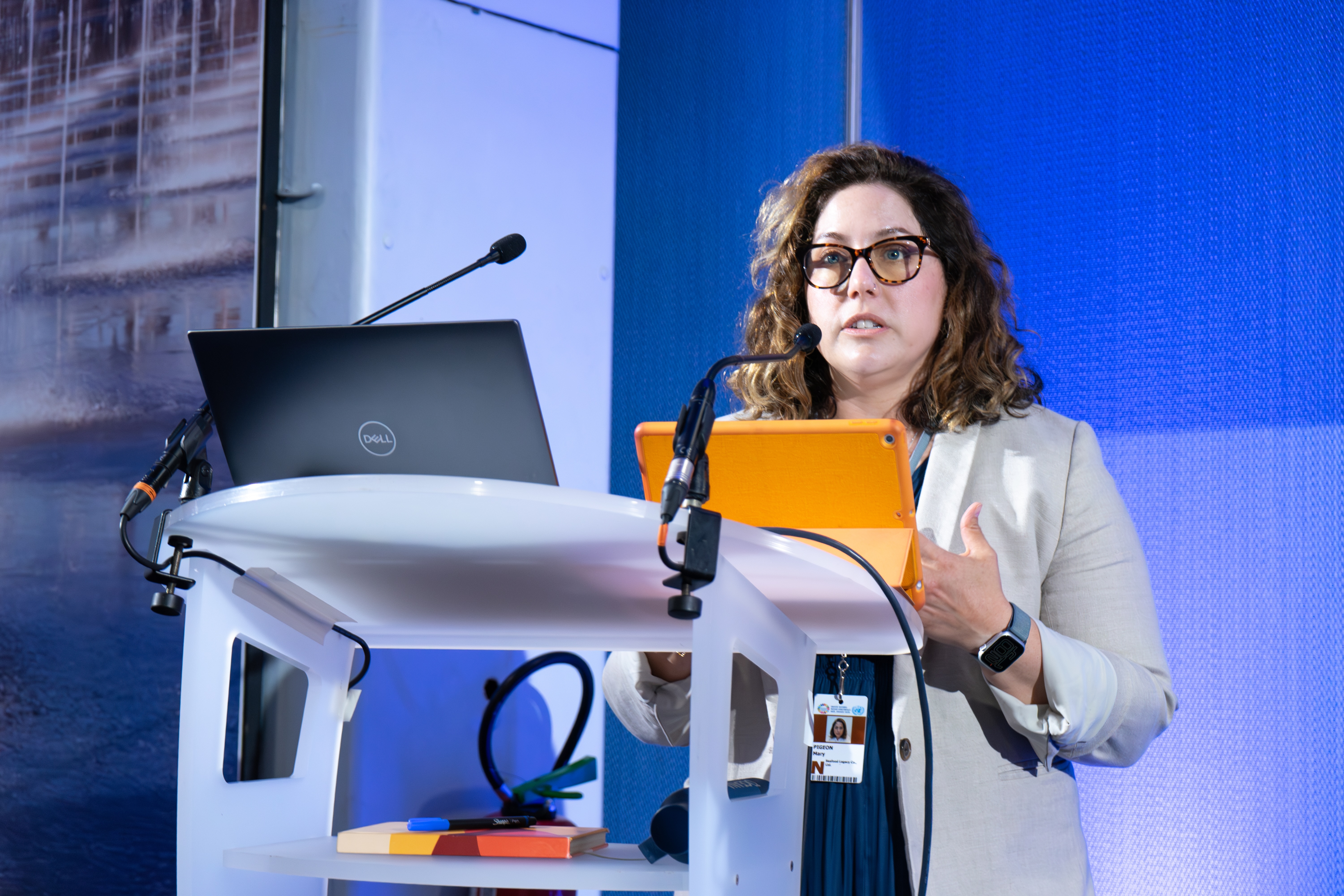
Fernando Andresen Guimaraes, Director for International Ocean Governance and Sustainable Fisheries at the European Commission, underlined the EU’s commitment to act, referencing the newly announced Ocean Pact:
The [EU] Ocean Pact, presented by EU Commission President at UNOC, put a focus on Flags of Convenience, which we believe we need to intensify efforts on, both to increase the level of transparency and the accountability of those responsible
He added:
“[The] EU has instruments to combat Flags of Convenience and fight IUU fishing, like the EU Control and IUU Regulations.” He was clear that “Beneficial ownership is identified as IUU fishing support that we want to stop”
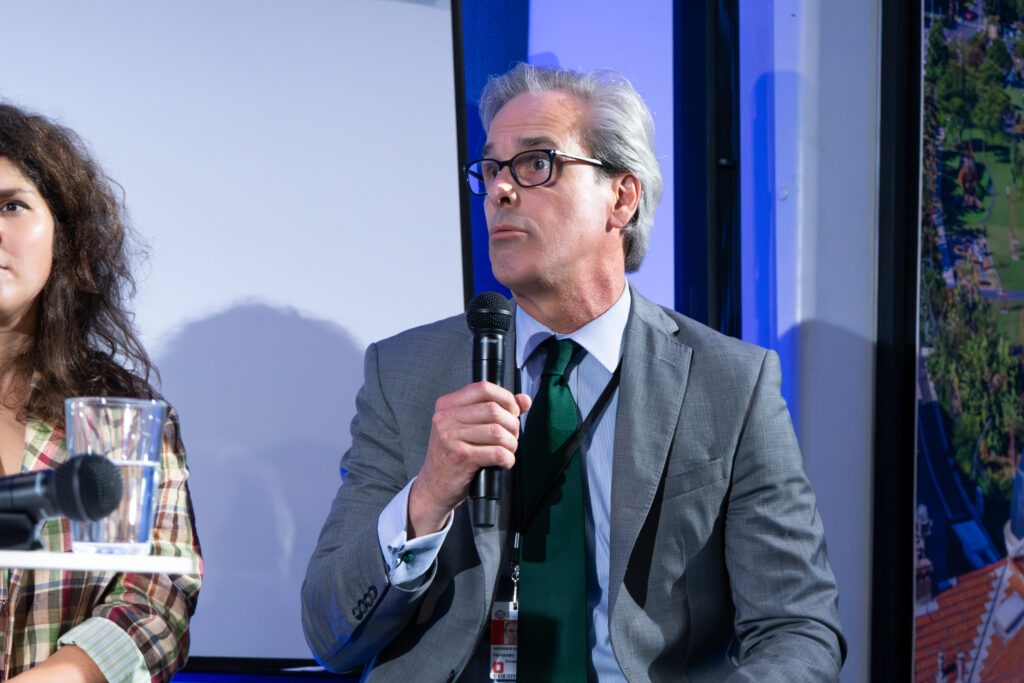
Vanya Vulperhorst further called on EU Member States to investigate financial links:
“[EU] Member States need to put in place requirements for nationals and companies to register foreign [vessel] ownership.”
She noted the need to follow the money:
States need to look where beneficial owners are based: Who is based in my country and where are financial flows coming from outside; how can we cut lines to make [IUU fishing] less profitable?
International cooperation and information sharing
Marco Foddi, Programme Manager of INTERPOL’s Illicit Markets Sub-Directorate, stressed the importance of global cooperation to uncover those behind FoCs and vessel flag changes:
“When it comes to fighting this problem, the sharing of information is key.”
He explained that secure channels through INTERPOL can help countries identify and pursue the real owners:
“Countries should use the proper notice around Flags of Convenience… it is about knowing who is behind vessels that change flags [and we also] need to also use tools around financial investigations.”
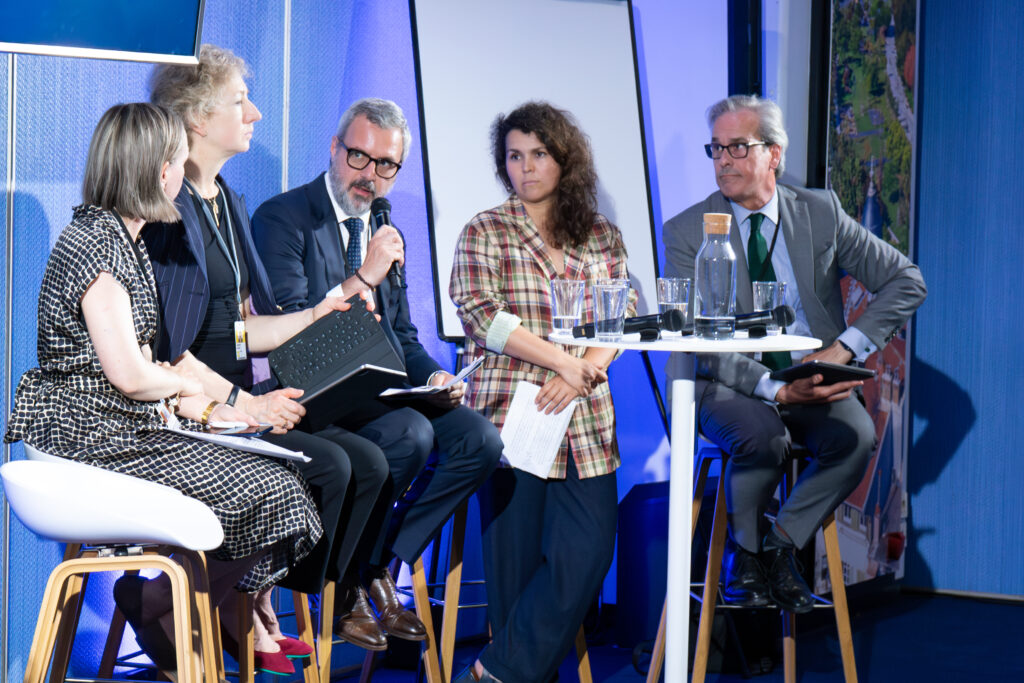
Claire Delpeuch, Head of Unit, Fisheries & Aquaculture, OECD, added that while many countries have committed to reforms, there remain major gaps:
There is no agreed definition of what a beneficial owner is, and rules on information sharing can be tricky and vary. These information sharing flows should, if possible, cover beneficial ownership information.
She added that data collection on beneficial ownership should be a priority for governments globally:
“They can make it mandatory to collect information on beneficial ownership in the process of granting fishing licenses, and establish mechanisms for information sharing across domestic authorities and through international organisations”
She also highlighted to OECD’s new legal instrument on illegal fishing that was adopted in April 2025.
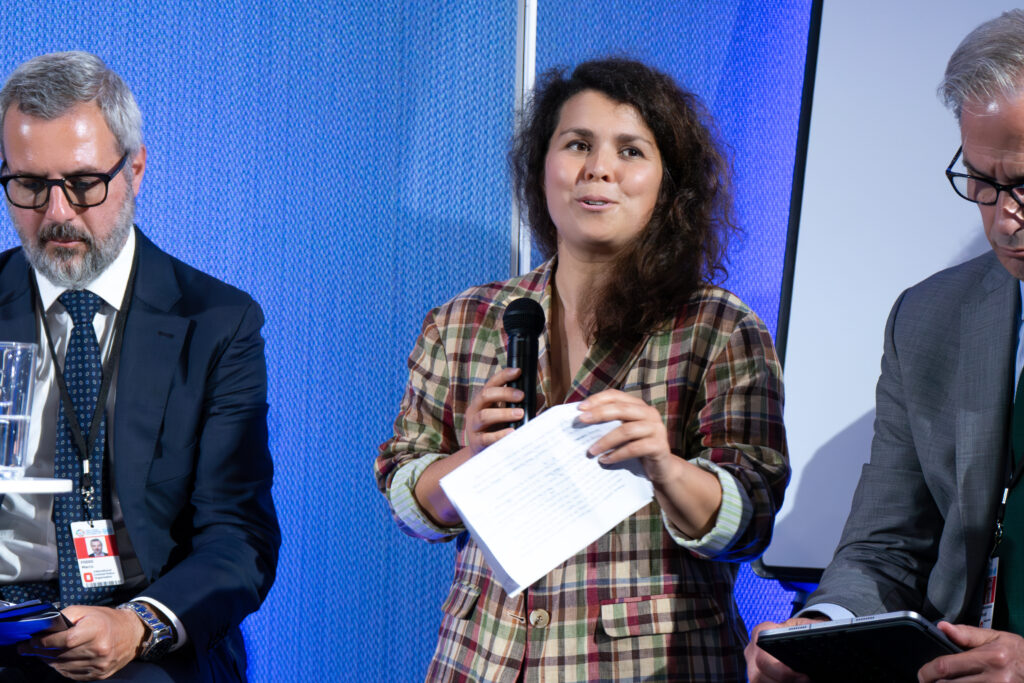
Annette Gibbons, Deputy Minister of Fisheries and Oceans Canada, noted the work that Canada is putting a strong emphasis on enforcement in the fight against IUU fishing: “[There must be a] focus on enforcement and helping other countries to conduct their own intelligence operations. We have a dark vessel platform to allow countries to see vessels that have turned off their radar – we have trained officers in the Pacific on this tool – these are some actions around setting the rules and enforcing the rules.” On international collaboration, she also called for more countries to join the IUU Fishing Action Alliance.
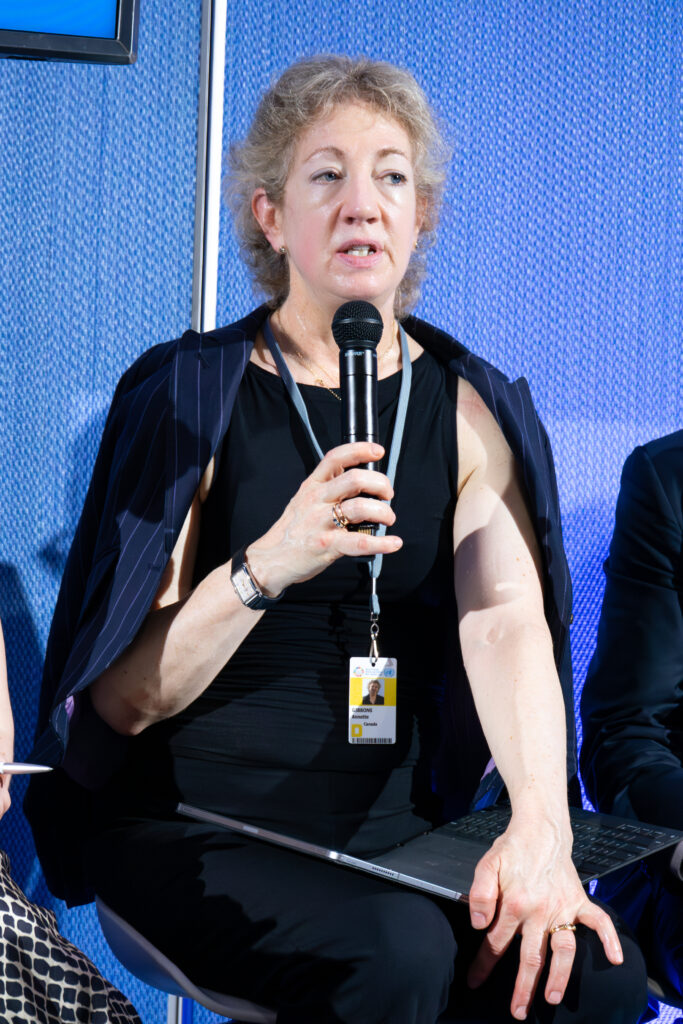
A clear call to action
Across the board, the message was consistent: action on Flags of Convenience, transparency and beneficial ownership information collection and sharing must intensify — and fast.
As Alexandre Iaschine, General Manager, Fondation de la Mer, concluded:
Let’s remember that we are at war… These IUU fishing mafia started a war against sustainable fisheries that provide food for the future of the earth… Flags of Convenience may be legal, but they are a critical enabler of IUU fishing. It is time for states to exercise proper due diligence. We call on all flag States to shine a light on vessel ownership… It is better to be armed and polite than simply be polite. We have the tools to fight [IUU fishing], so we have to do it.”
The EU IUU Fishing Coalition now calls the European Union to deliver on the issues discussed in this Nice side event and to on its commitments, including those made in the European Ocean Pact to “intensify efforts to address challenges with ‘flags of convenience’, ensuring transparency in fishing vessel ownership structures to hold accountable those responsible for illegal practices in maritime industries, including fisheries”, by taking action to:
1. Mandate full Beneficial Ownership (BO) transparency
Require that information on beneficial ownership is collected and made disclosed, including through EU’s Sustainable Fisheries Partnership Agreements (SFPAs) and international fora. The Commission should ensure that beneficial ownership information is systematically collected by EU Member States to stop true owners from profiting from illegal fishing, and that this data in turn be shared with the European Commission, as required under the SMEFF Regulation.
2. Take concrete action on Flags of Convenience
Following the conclusion of an ongoing report on FoCs, the Commission should make a commitment to analyse how to restrict or ban the use of such FoCs for fishing vessels operating in EU waters or by EU-owned entities.
3. Further strengthen and resource the EU IUU dialogues capacities
Enhance the credibility and impact of the EU’s zero-tolerance IUU approach by ensuring the EU carding system is applied consistently, transparently, and with sufficient human and financial resources to enable timely and effective enforcement. The EU should continue or begin specific dialogues with states considered as Flags of Convenience and recommend that they close their registers to fishing vessels.
4. Enforce stronger import controls and implement IT CATCH
Ensure all EU Member States apply robust, harmonised import controls and meet clear inspection standards. Imports caught by vessels flagged to Flags of Convenience should be treated as high risk in the CATCH IT system and relevant catch certificates be placed under increased scrutiny.
Full event line-up:
Full event line-up:
- Opening remarks from Max Schmid, Chief Operating Officer of the Environmental Justice Foundation, on behalf of the EU IUU Fishing Coalition
Panel discussion, moderated by Maisie Pigeon, Director, Coalition for Fisheries Transparency:
🔸Annette Gibbons, Deputy Minister of Fisheries and Oceans Canada
🔸Fernando Andresen Guimaraes, Director, International Ocean Governance and Sustainable Fisheries, Directorate-General for Maritime Affairs and Fisheries, European Commission
🔸Vanya Vulperhorst, Campaign Director, Illegal Fishing and Transparency, Oceana in Europe, on behalf of the EU IUU Fishing Coalition
🔸Marco Foddi, Programme Manager, Environmental Security Sub-Directorate (ENS), INTERPOL General Secretariat
🔸Claire Delpeuch, Head of Unit, Fisheries & Aquaculture, OECD
- Closing remarks from Alexandre Iaschine, General Manager, Fondation de la Mer
